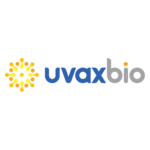NEWARK, Del.–(BUSINESS WIRE)–Uvax Bio, LLC, a privately held, clinical-stage vaccine company, today announced acknowledgement from Australian Therapeutic Goods Administration and approval from the Human Research Ethics Committee (HREC) to conduct a Phase 1 study of Uvax Bio’s HIV-1 vaccine candidates in healthy volunteers in Australia. Uvax Bio will work with their Australia-based clinical research partners Avance Clinical and the Nucleus Network study site to initiate this study in January 2024.
The two vaccines being tested are based on Uvax Bio’s proprietary 1c-SApNP® technology displaying 20 uncleaved, prefusion-optimized (UFO) HIV envelope (Env) trimers in wild type and glycan-trimmed forms (UVAX-1197 and UVAX-1107, respectively). Uvax Bio’s HIV-1 vaccines are combined with CpG 1018® adjuvant and aluminum hydroxide.
In a preclinical toxicology study, UVAX-1107 & 1197 combined with CpG 1018® and aluminum hydroxide were shown to be safe with no serious adverse events. These results are consistent with previously approved protein-based vaccines.
In a second preclinical immunogenicity study, immunization with Uvax Bio’s HIV-1 vaccine candidates elicited robust neutralizing antibody responses against the vaccine-matched virus in 99% of the animals. Furthermore, preliminary screening assays demonstrated appreciable neutralization in serum when tested against a panel of primary HIV-1 isolates.
“The body of evidence from our preclinical studies and GMP manufacturing runs was instrumental in facilitating this authorization to begin preparation for our first Phase 1 trial,” commented Ji Li, Ph.D., Uvax Bio CEO. “Our clinical team will immediately begin the preparation to initiate this trial in January 2024.”
About the Phase I Clinical Trial
The study will investigate the safety of two different regimens of UVAX-1107 and UVAX-1197 vaccines. Both vaccines utilize Uvax Bio’s 1c-SApNP® platform displaying 20 copies of the native-like, prefusion-stabilized HIV- 1 envelope (Env) trimer based on the UFO design. The two antigens differ insofar as UVAX-1197 retains the virus’ “wildtype” (WT) glycan shield, while UVAX-1107 has a portion of the glycan shield removed through “glycan trimming” (GT). Glycan trimming is an enzymatic removal of glycans to allow better access to the conserved neutralizing epitopes on HIV-1 Env. The vaccine candidates are designed for active immunization and are intended to prevent HIV-1 infection.
The Uvax Bio HIV-1 vaccines will be administered to 34 healthy adult subjects that meet the study inclusion criteria. The primary endpoints will measure the safety, reactogenicity, and immunogenicity of the Uvax Bio HIV-1 vaccines after the primary and boosting dose series. The study will investigate whether either vaccine or the combination of both produces the optimal immunological response.
About HIV/AIDS
The Joint United Nations Programme on HIV/AIDS (UNAIDS) estimates that 38.4 million people worldwide are currently living with HIV, and 1.5 million people became newly infected with HIV in 2021 alone. According to the latest estimates from the Centers for Disease Control and Prevention (CDC), approximately 34,800 new HIV infections occurred in the United States in 2019. Apart from very rare cases involving bone marrow transplants, there is no cure for the infection, which must be held in check indefinitely with antiviral drugs to keep it from progressing to the deadly immune deficiency condition known as AIDS.
About Uvax Bio
Uvax Bio, LLC, a spin-off vaccine company from Scripps Research, employs proprietary 1c-SApNP® platform technology invented by Dr. Jiang Zhu of Scripps Research to develop and commercialize prophylactic vaccines for challenging infectious diseases. Uvax Bio holds the exclusive worldwide rights to the 1c-SApNP® platform and an expanding portfolio of 12 patented preclinical vaccine candidates. In addition to the leading candidates in HIV, Uvax Bio is also working to advance its vaccines for influenza, RSV, and hMPV. The company’s technology enables the production of virus-like protein particles that can display 20-60 stabilized antigens targeting a wide range of viral and bacterial diseases. The vaccines are produced using a single step, universal, cell-based manufacturing process.
For more information, visit www.uvaxbio.com.
Contacts
Kevin O’Neill
SVP, Corporate Strategy
[email protected]
302-595-2285








